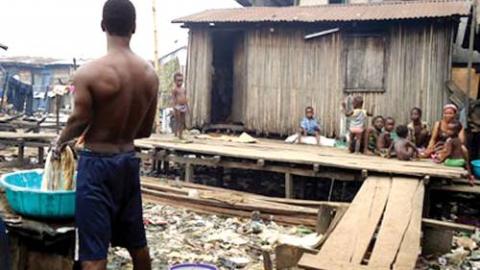
She explained that Nigeria's small and medium scale businesses are mainly driven by young people and women, suggesting that the government credit facilities must target these Nigerians.
Action Aid Nigeria says an estimated 82.9 million Nigerians are currently living below the poverty line as the country struggles to recover from the pandemic downturn.
Ene Obi, the country director of ActionAid, stated this on Wednesday at a programme on tax and development in Abuja.

She explained that Nigeria's small and medium scale businesses are mainly driven by young people and women, suggesting that the government credit facilities must target these Nigerians.
While noting that government incentives to grow small-scale businesses would help tackle increasing poverty and unemployment, Obi said that the tax to GDP ratio remains low in Nigeria.
[story_link align="left"]86558[/story_link]
Obi said the global economic disruption by the COVID-19 pandemic has also brought into focus the impact of decades of inadequate investment in health and education.
"Oil represents over 80 per cent of Nigeria's exports, 30 per cent of its banking-sector credit, and 50 per cent of the overall government revenue, with the drop in oil prices, government revenues are expected to fall from an already low 8 per cent of GDP in 2019 to a projected 5 per cent in 2020," she said.
"Consequently, the government has had to review its fiscal plan for 2020 with an increase in the initial 2020 budget of N10.594trn to N10.81trn in a revised budget despite the challenge of dwindling resources.
"In the last year, the government has undertaken various reforms to strengthen its tax revenue base. For instance, the Senate passed the Financial Bill which among other provisions raised Value Added Tax (VAT) from 5%-7.5%, the CBN new directives for taxing transactions, stamp duty charges as well as exploring other avenues for taxation such as taxing the digital economy amongst others.
"Within the realm of these efforts, citizens are concerned that the government's drive for increased revenue is not taking into consideration the socio-economic conditions of the people, like the increase in food prices, fuel price hike and the increase in electricity tariff."